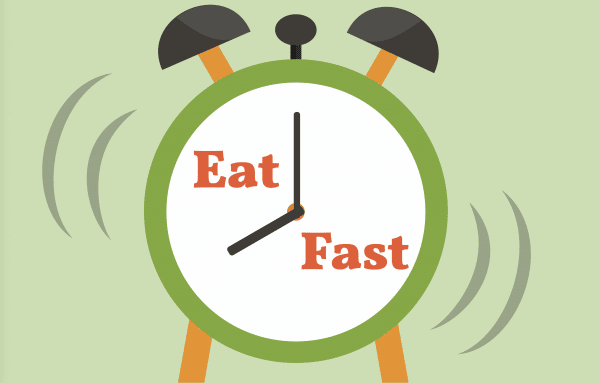Time Restricted Eating is a form of Intermittent Fasting where instead of eating lower calories for a few days a week, you eat all your food within a certain time of day – eg 10am to 6pm. And you don't have to count your calories.
I’m finding it’s a lot easier for many of my clients than Intermittent Fasting methods like 5:2 or 16:8, where they have struggled to restrict calorie intake over a whole day. Maybe that’s because as women we have more hormone fluctuations – and it could therefore be more important WHEN we eat rather than lowering our calorie intake (which can put additional stress on our bodies).
Fasting has been done by humans across the world for thousands of years. Our ancestors HAD to fast, as they didn’t have 24 hour access to food like we do.
And it’s popular amongst some popular health gurus, including Dr Michael Mosely, Dr Rangan Chatterjee and Dr Zoe Harcombe, who all promote the benefits of TRE in their books.
What are the Health Benefits?
Studies have shown that there are a whole host of health benefits from fasting for portions of the day, with this study showing that eating earlier in the day had more benefits. Health improvements can include;
- Weight loss (your body is able to burn fat more easily as you fast and run out of sugar stores)
- Reduced inflammation
- Better blood sugar control
- Improved detoxification
- Better control over appetite
- Improved heart health
- Improved immunity
- Better brain function
- Protection against ageing and stress
More human studies are needed however to really evaluate all the effects.
How to do Time Restricted Eating
Overnight fasting has become a popular trend, as it’s much easier to fast when you’re asleep! The idea is you leave a 12-16 hour gap between dinner and breakfast or lunch – and do that 3-5 times a week. That might mean having dinner at 7, then not eating again until 7am.
However this might look different in your life. You might have evening commitments, or work shifts. You can adapt it to fit your lifestyle.
If you’re new to any kind of fasting, it’s wise to start gradually and increase the time period to one you’re comfortable with. The longer you leave the time period, the more benefits you seem to get. So if you can go to 16 hours, from 7pm to 11am, research suggests you’re more likely to benefit. Although Dr C thinks 12 hours should be enough for most of us.
You can have liquids during your fast, but only water, herbal tea, black coffee or tea. Some fasting sites suggest you can have up to 50 calories without breaking your fast (eg a bit of milk with your coffee), but there's no evidence to back this up as yet.
I try to do TRE every Monday-Thursday (from 7pm to 11am), but on the weekend I find it hard to eat dinner early when I’m more likely to be out or socialising.
Now just to point out this doesn’t give you licence to eat whatever you want in your eating period! You still need to get your nutrients in, so make sure you’re eating as healthily as possible. What you don’t need to wory too much about is calories. Focus on nutrients instead.
Who it might NOT be for
Time Restricted Eating is not for everyone. If you have any of the following, or any other health condition, then you need to get advice from your Doctor.
- You have Diabetes or Hypoglycaemia (dizziness, irritability, low blood sugar)
- You’re underweight or have an eating disorder
- You have a thyroid condition or sub optimal thyroid hormones
- You have high Blood Pressure or heart conditions
- You are super stressed or anxious (this might stress out your adrenals even more)
If you're healthy and want to give it a go, do watch out for any symptoms such as fatigue, anxiety, or hormone issues like PMS or irregular periods. If this happens, stop fasting immediately – you may need more frequent intake of food.
So if you’ve had a good or bad experience of Time Restricted Eating, do comment below and let me know. If you’d like to know more about getting some help with your hormones, or losing weight, then do contact us and we can send you some information.

